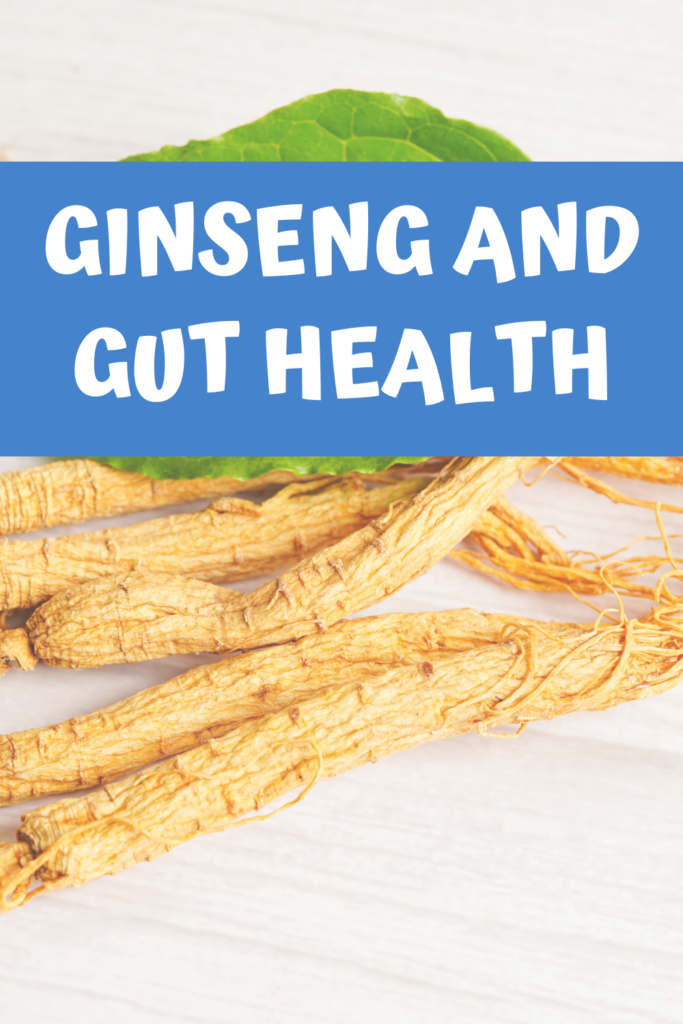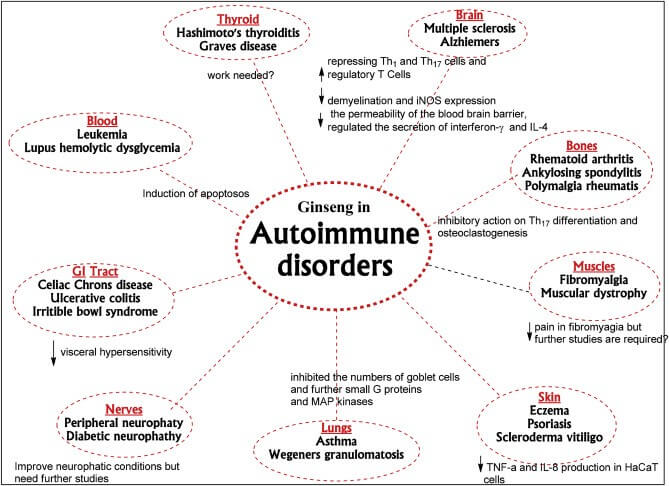Is there a connection between ginseng and gut health?
About a year ago I mentioned ginseng when I wrote 22 Adaptogens for Hormones.
I briefly stated,
“Panax,” the genus which encompasses both American and Asian ginseng, equates to “all-heal” in Greek. It helps with immunity, muscle damage and physical endurance, contains anti-cancer properties, and can provide positive short-term improvements in cognitive function.
Since hormonal and gut health are connected, I wanted to understand more about specific adaptogens and their implication on the gut.
What is Ginseng
Ginseng is a type of slow-growing perennial plant that belongs to the genus Panax in the family Araliaceae (ivy).
Panax species are characterized by the presence of ginsenosides (also known as saponins) and gintonin. They refer to a series of dammarane or oleanane type triterpenoid glycosides.
These saponins exhibit modulatory effects to the central nervous system and beneficial effects to patients suffering from cardiovascular diseases, and also have anti-diabetic and anti-tumor properties.
Most of the biological activities of ginseng are derived from those main constituents.
The term ginseng is derived from the Chinese rénshēn, whererén means “person” and shēn means “plant root.”
The plant’s tapered roots are around 2 to 12 inches long and a tanned color.
Sources: HERE, HERE, and HERE.
10 Ginseng Health Benefits
Here are the 10 most common health benefits you’re likely to find.
- May reduce inflammation.
- Can benefit brain function.
- Could improve erectile dysfunction.
- Might help boost the immune system.
- May have potential benefits against cancer.
- Could increase energy levels.
- Might lower blood sugar.
- Helps boost mood.
- Could help manage diabetes.
- ADHD treatment implications.
Great, but what about gut health? Are there actually ginseng and gut health implications?
Ginseng and Gut Health
Click HERE to save this post for later.

While researching the ginseng and gut health connection, I didn’t find a ton, if you want the real and raw truth.
I can’t sit here and tell you, “Try ginseng. If you do, gut health will improve instantly.”
I’m not really into making things up.
However, I would be lying to you if I didn’t tell you that what I did find was a correlation between gut health and red ginseng.
- Red ginseng extract (RGE) exerts a protective effect against cytotoxicity and DNA mutagenesis induced by H.pylori and can reduce proinflammatory activity in gastric mucosal cells. source
- Ginseng and stomach health via stomach ulcers research conducted. source
And according to Dr. Abby Campbell,
As one of the most powerful medicinal herbs, red ginseng benefits gut health and protects immunity against pathogens.
In the article, she makes note:
In 2015, the Journal of Ethnopharmacology reported that red ginseng can improve the structure of gut microbiota.
Out of seven traditional Chinese herbs, red ginseng was declared the most effective in promoting the growth of probiotics including Lactobacillus and Bifidobacterium. When both of these genera of probiotics are working in the gut, a powerful synergistic effect happens in the immune system.
One study published in the Alimentary Pharmacology and Therapeutics reported Lactobacillus and Bifidobacterium doubled the number of peripheral white blood cells after only three weeks of ingestion.
These white blood cells consumed and decimated pathogens.
Immune System
Additionally, there is a correlation between ginseng and the immune system.
And honestly? The reason I believe ginseng and gut health are most related is because of the immune system factor.
Remember, 70-90% of the immune system is located in the gut.
A severely compromised gut affects the entire immune system.
Which is probably why you can find some evidence of ginseng helping with autoimmune conditions.

Source: ResearchGate
Red vs White Ginseng
During my research, I was asking, “Okay, so what is the difference between red and white ginseng?”
Remember, during initial research, it stated that ginseng was a tan color.
The difference between red and white ginseng lies in the processing.
White ginseng is what it’s called when it has only been dried.
And when it’s further processed with heat and then dried, it is called red ginseng.
This is because the ginseng changes color.
But this also means that due to the processing, not all red ginseng will be created equally.
Which Ginseng to Choose?
Because I own my supplement line, Gutbyo[me], it’s important that I’m able to share – with full confidence – high-quality supplements.
Should you choose to use ginseng – or anything else for that matter – I want you to ensure it’s only the best.
My supplement line only focuses on products 100% conducive for gut health and gut healing, so we don’t have a ginseng product.
That being said, here are 4 you could consider:
- Asian (Panax) Ginseng from Herb Farm (white root)
- Panax Ginseng from Pure Encapsulations
- Asian Ginseng form Wise Woman Herbals
- Red Ginseng Energy from EuroMedica (Korean Red Ginseng)

Find all 4 of the ginseng supplements via my Fullscript online dispensary.
Save 20% once you’re signed up. After your first purchase, I’ll increase your savings to 25% for life!
As a side note, I DO take the Stress Balance from NutriDyn which includes ginseng as part of my adrenal dysfunction healing. If you want to explore everything about “Adrenal Fatigue,” I have put together a series that outlines my story and the entire journey.
If you liked this article on ginseng and gut health, you might also enjoy:
- The 4 Stages of Adrenal Fatigue
- Best Supplements for Beginners [on your gut healing journey]
- Best Supplements for IBS Bloating
Questions?
Xox,
SKH
🤰 bloating be gone! weight loss through optimal gut health for women
💃ʜᴇᴀʟ ʏᴏᴜʀ ɢᴜᴛ. ʜᴇᴀʟ ʏᴏᴜʀ ʟɪfe.
🫶🏻 founder gutbyome.com






